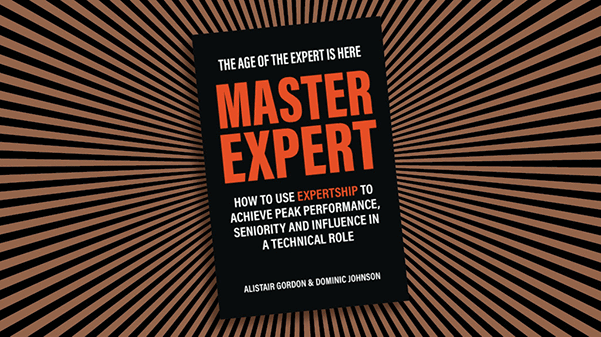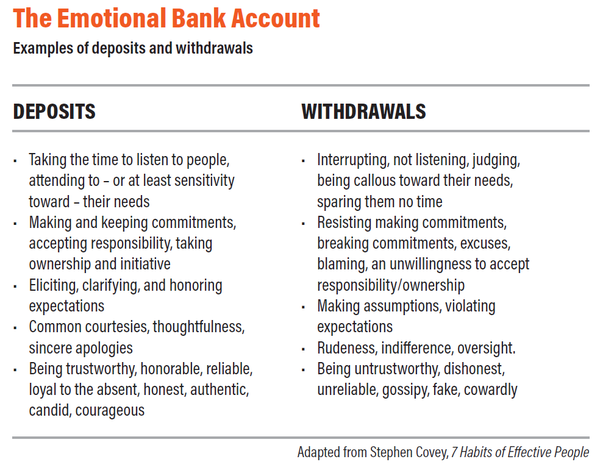The “emotional bank account” likens every relationship we have to a bank account. Each interaction builds a balance of increasing trust, or reduces it – it’s a deposit or a withdrawal.
If you aren’t actively fostering high-trust relationships, then you will see a gradual decline in emotional energy. Where one or both parties’ needs aren’t being addressed, there can even be resentment or antipathy, which undermines collaboration.
The notion of an emotional bank account might make sense in your personal life, but have you considered it for work-based relationships?
Ask the following questions:
-
Can you identify relationships with colleagues or stakeholders that need improvement?
-
How would you objectively audit the historical balances of deposits and withdrawals from the emotional bank account for each relationship? From their perspective as well as yours.
-
Can you identify some trust-building deposits to make? What about reducing, eliminating or offsetting some of the trust-eroding withdrawals?
If a particular work-relationship isn’t going well, you may have grievances with the other party’s conduct. Using the “emotional bank account” framework helps you step back from resentment and take initiative to improve the situation.
It doesn’t mean you should overlook your own needs. But it does let you try to balance the relationship, by introducing trust-building activities, or by reducing trust-eroding ones.

This tip comes from our new book, Master Expert: how to use Expertship to achieve peak performance, seniority and influence in a technical role. Where to buy Master Expert.
Please support our campaign to get a better deal for technical specialists and individual contributors.




